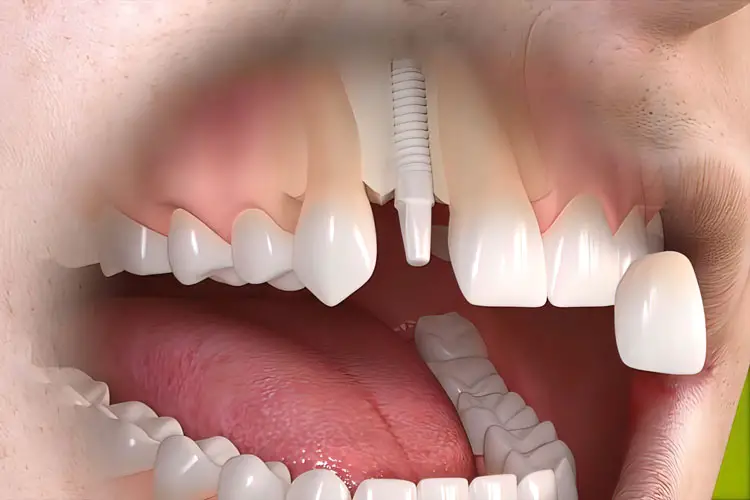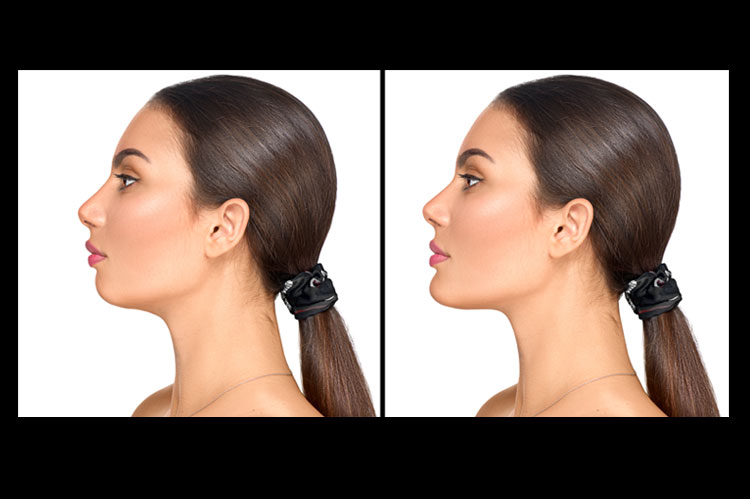As humans, we have a tendency to make snap judgments about one another. Like or not, it’s something we’re compelled to do as a species.
As Melissa Ricker points out in A Conscious Rethink, there are long-term implications. She says whether right or wrong, a first impression is difficult to reverse, and the entire future of a relationship if often determined by the initial interaction.
A big part of how we judge people is based on visual elements like facial aesthetics, and a person’s smile in particular. Whenever you’re meeting someone new, your smile plays a critical role in how others perceive you and the overall first impression that you make.
This is advantageous for people with great smiles. But for others, it can create difficulties and potentially lead to problems both socially and emotionally.
In this post, we’ll discuss how big of a factor your smile is in everyday life, and how it can make or break a first impression.
The Science of First Impressions
Misagh Habibi, Director of NewSmile Dental in Western Australia, says that despite many of us being told not to judge a book by its cover, 99.99 percent of us judge others on first impressions at every moment — mostly on a subconscious level.
Habibi also cites research that indicates that we “scan” one another within seconds of a first meeting and create a snapshot in which we form impressions of a person’s confidence level, success, intelligence, competence, and fitness. The amazing thing is that this can all occur in as little as seven seconds.
Jeffrey Lau confirms this in Lifehack, saying that it’s primarily due to two psychological phenomenon known as anchoring effect and confirmation bias:
- The anchoring effect. Kendra Cherry explains in Verywell Mind that anchoring is a cognitive bias in which people have a tendency to rely too heavily on the very first piece of information they learn.
- Confirmation bias. Shahram Heshmat, Ph.D., notes in Psychology Today that the latter phenomenon “occurs from the direct influence of desire on beliefs. When people would like a certain idea/concept to be true, they end up believing it to be true.” So, when we encounter someone who’s attractive with a brilliant smile, we tend to believe that they have mainly positive attributes and are a person we’d like to get to know.
In other words, our minds are inherently biased by nature. Even if we’re making a strong effort not to judge someone on first appearances, it’s a losing battle because we’re hardwired to judge them precisely on that basis.
And as researchers Laurie R. Santos and Alexandra G. Rosati point out in a study in the US National Library of Medicine National Institutes of Health, it’s something with an evolutionary origin. There’s just no getting around it.
The Role Your Smile Plays
Habibi goes on to talk about a concept called “smile attractiveness” and how it directly impacts the first impression. “Psychologists who have researched the smile have found a profound, detailed relationship between aspects of a smile’s architecture within a person’s face, and how it defines certain character traits that are projected by that patient,” he writes.
He also references a quote from Radboud University Medical Centre, who says, “Smile attractiveness has a penetrating psychosocial impact — affecting both how a person is judged and also how they judge themselves.”
Vicki Salemi expounds on this in Adweek, where she talks about the importance of an attractive smile and how it can affect a person in professional situations like job interviews and networking events.
She references a study by the American Academy of Cosmetic Dentistry (AACD) that discovered nearly half (48 percent) of adults believe someone’s smile is the most memorable feature when meeting for the first time.
And as John Moore, Jr., DDS points out in the Houston Business Journal, not having a good smile can adversely impact the career paths of some people. “Many careers being sought after by young people today are highly dependent on a brilliant, winning grin,” he says. “These include careers in public speaking, leadership, management and highly motivated sales roles as well as entertainment, modeling, and media. For such careers, a smile is central to that all-important first impression.”
A Reluctance to Smile
It should come as no surprise that dental issues and lacking a great smile can be a source of anxiety for a lot of people. Diana Hembree mentions in Forbes that many people aren’t smiling for the simple reason that they’re not happy with the condition of their teeth.
She references one particular study by the American Dental Association that found:
- 25 percent avoid smiling due to the condition of their mouth and teeth.
- 23 percent feel embarrassment because of it.
- 20 percent feel anxiety because of it.
Wendell Potter at the Huffington Post goes into further detail. He argues that a substantial number of Americans — both rich and poor — are self-conscious of their teeth. Many avoid smiling or showing their teeth altogether.
It’s a fairly common occurrence and something that a lot of people struggle with. And although it’s a cosmetic issue, it can negatively affect a person’s mental well-being. Dr. Michael’s team even cites research that says 15 percent of people with a poorly maintained mouth feel depressed because of it.

Christine’s Story
The team at Pallant Orthodontics talks about a young woman named Christine and her struggle. Ever since she could remember, she hated her teeth and did everything possible to avoid them from being exposed. As Christine put it, “I painstakingly hid them behind my lips while silent and my hand while speaking. I didn’t even smile in my graduation photograph.”
It’s an issue that she battled for years throughout high school all the way through her time in college. Sadly, she experienced ridicule and embarrassment because of it, which ultimately took a toll on her self-confidence.
Christine inevitably decided to fix the problem with aesthetic braces, which corrected her tooth alignment and gave her a far more attractive smile. In her own words: “It gave me the confidence to achieve my personal and professional goals that I previously considered to be out of my reach. Most importantly, it lifted the suffocating burden of being ashamed to smile.”
Kulang’s Story
Anna Scott writes at Youth With A Mission about a woman from Papua New Guinea named Kulang who since childhood would always cover her mouth anytime she laughed or smiled because of holes in her two front teeth. It’s something she suffered from well into adulthood until she received a dental treatment that brought her smile to life.
Performed by a volunteer dentist during a mobile outreach program, Kulang was one of nearly 700 people who received dental treatment. And it changed her life forever.
As she put it, “I was so surprised to see my teeth in the mirror — I am just so happy! Now I can smile big again!”
Louis’ Story
The Hope Smiles team has a story about a 15-year-old boy named Louis, from Port Au Prince, Haiti, who was mocked for his teeth. He said, “Kids at school teased me about my teeth, and I hated to smile and laugh.” It’s been devastating and made his life very difficult.
While Louis’ orthodontic treatment has only recently started and will take time, he’s already much more hopeful about the future and believes that he’ll have the confidence to smile and laugh again.
It’s Never Too Late to Improve Your Smile
As humans, we place a big emphasis on a person’s smile. It’s the main thing that we base a first impression on, which can impact countless aspects of a person’s life.
You could make the point that your friendships, career, networking opportunities, confidence level and overall quality of life are all impacted by your smile. As a result, people who are embarrassed about their smiles are likely to experience hardships that those with a great smile won’t typically have to face.
The good news is that a poor smile isn’t something that you have to continue to struggle with. Whether it’s due to crowding, discoloration, an irregular bite or anything else, there are non-invasive procedures available that can improve your smile significantly.
Images by: Boram Kim, Tom Holmes, Joshua Rawson-Harris











